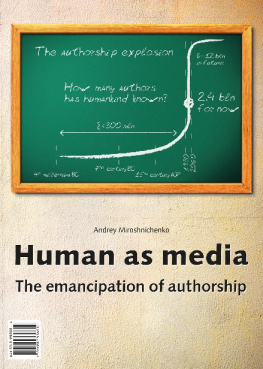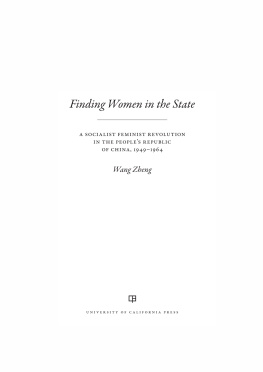Andrey Yanuaryevich Vyshinsky - J. V. Stalins Doctrine of the Socialist State
Here you can read online Andrey Yanuaryevich Vyshinsky - J. V. Stalins Doctrine of the Socialist State full text of the book (entire story) in english for free. Download pdf and epub, get meaning, cover and reviews about this ebook. City: Moscow, year: 1951, publisher: Foreign Languages Publishing House, genre: History. Description of the work, (preface) as well as reviews are available. Best literature library LitArk.com created for fans of good reading and offers a wide selection of genres:
Romance novel
Science fiction
Adventure
Detective
Science
History
Home and family
Prose
Art
Politics
Computer
Non-fiction
Religion
Business
Children
Humor
Choose a favorite category and find really read worthwhile books. Enjoy immersion in the world of imagination, feel the emotions of the characters or learn something new for yourself, make an fascinating discovery.

- Book:J. V. Stalins Doctrine of the Socialist State
- Author:
- Publisher:Foreign Languages Publishing House
- Genre:
- Year:1951
- City:Moscow
- Rating:4 / 5
- Favourites:Add to favourites
- Your mark:
- 80
- 1
- 2
- 3
- 4
- 5
J. V. Stalins Doctrine of the Socialist State: summary, description and annotation
We offer to read an annotation, description, summary or preface (depends on what the author of the book "J. V. Stalins Doctrine of the Socialist State" wrote himself). If you haven't found the necessary information about the book — write in the comments, we will try to find it.
Andrey Yanuaryevich Vyshinsky: author's other books
Who wrote J. V. Stalins Doctrine of the Socialist State? Find out the surname, the name of the author of the book and a list of all author's works by series.
J. V. Stalins Doctrine of the Socialist State — read online for free the complete book (whole text) full work
Below is the text of the book, divided by pages. System saving the place of the last page read, allows you to conveniently read the book "J. V. Stalins Doctrine of the Socialist State" online for free, without having to search again every time where you left off. Put a bookmark, and you can go to the page where you finished reading at any time.
Font size:
Interval:
Bookmark:
Academician A. Y. Vyshinsky
Foreign Languages Publishing House
Moscow 1951
Prior to Marxism, which is based on the materialist conception of history, no science of society and of its origin and development existed. Pre-Marxian sociology was devoid of scientific content nor did it possess any scientific value, for those engaged in its pursuit during that epoch lacked the genuinely scientific method which an investigation into social phenomena and social relations requires. Sociologists like Spencer and Comte, Rousseau and Proudhon, Mikhailovsky and Bakunin were unable to give a scientific explanation of the origin of ideas and consequently could not assign to them their proper place in the history of the development of human society. Instead of elucidating social phenomena and social relations in the light of science they proceeded from arbitrary, scientifically unsubstantiated hypotheses.
"Hitherto," wrote Lenin on this score in his famous work What the "Friends of the People" Are and How They Fight the Social-Democrats, "bring unable to descend to such simple and primary relations as the relations of production, the sociologists proceeded directly to investigate and study the political and legal forms, stumbled on the fact that these forms arise out of certain ideas held by men in the period in questionand there they stopped...."* (Italics mine.A.V.)
* V. I. Lenin, What the "Friends of the People" Are and How They Fight the Social-Democrats, Moscow 1951, p. 19.
Lenin's characterization of the pre-Marxian sociologists hits the nail squarely on the head. These scientists just stumbled on the fact that social forms had arisen; they did not arrive at this conclusion by dint of scientific effort. Groping blindly in a maze of subjective hypotheses constructed with the aid of purely abstract, speculative reasoning they naturally looked to the development of ideas for the explanation of why political and legal forms came into existence and developed, while deducing the development of ideas from these selfsame ideas. Thus the viscous circle of their logic was completed. Lenin's assertion that the sociologists "stopped" after explaining that political and juridical forms had their origin in certain ideas entertained by men emphasized the impotence and poverty of pre-Marxian sociology.
Marxism shows the sociologists the way out of the impasse by revealing the true origin of social consciousness and drawing the conclusion that the course of ideas depends on the course of things.
Lenin emphasized this fact as being of exceptional importance in the history of sociology, pointing out that "this hypothesis was the first to elevate sociology to the level of a science. Hitherto, sociologists had found it difficult to distinguish in the complex network of social phenomena which phenomena are important and which unimportant (that is the root of subjectivism in sociology) and had been unable to discover any objective criterion for such a distinction."*
* Ibid., p. 20.
The principal defect in the sociological theories which prevail in bourgeois science and serve the interests of the ruling circles in the capitalist countries is one of method. Bourgeois sociologists describe and explain social phenomena to suit the book of the classes in power, to justify capitalism and the social relations existing in the countries where it holds sway.
Even the most conspicuous sociologists before Marx were of a calibre too small to have a correct understanding of the root causes of the class contradictions and class struggles which they themselves, particularly those who lived under capitalism, witnessed, not to speak of their inability to forecast the trend of these contradictions and to comprehend and formulate the laws governing this development.
Marxism terminated the lamentable state in which sociology found itself.
"... Marx put an end to the view that society is a mechanical aggregation of individuals, which allows of any kind of modification at the will of the powers that be (or, what amounts to the same thing at the will of society and the government) and which arises and changes in a fortuitous way; he was the first to put sociology on a scientific basis by establishing the concept of the economic formation of society as the sum total of given relations of production and by establishing the fact that the development of these formations is a process of natural history."*
The recognition of social development as a process of natural history was tantamount to recognizing that social development is a phenomenon endowed with regularity, that it is subject to the operation of the laws that characterize each historical epoch. It is not the task of the student of sociology to predict the road social development may take or to divine the "prospects for the future," but to cognize the laws of the present.
Speaking of Marx's Capital as the chief and basic work in which the theory of scientific Socialism is set forth, Lenin pointed out that Capital "restricts itself to the most general allusions to the future and traces only those already existing elements from which the future system is growing. Everybody knows that as regards prospects for the future incomparably more was contributed by the earlier Socialists, who described the future society in every detail, desiring to enthuse mankind with a picture of a system under which people will get along without conflict and under which their social relations will be based not on exploitation but on true principles of progress, conforming to the conditions of human nature. Nevertheless, in spite of a whole phalanx of highly talented people who expounded these ideas, and in spite of the most highly convinced Socialists, their theories stood aloof from life and their programs from the political movements of the people until large-scale machine industry drew the mass of the proletarian workers into the vortex of political life, and until the true slogan of their struggle was found."*
* V. I. Lenin, What the "Friends of the People" Are and How They Fight the Social-Democrats, pp. 95-96.
This "true slogan" was found by Marx; it was developed and brilliantly applied by Lenin and Stalin, the two men of genius who built that most powerful state, the first socialist country in the world.
The discovery of this slogan was a result of the practical experience gained in the class struggle of the proletariat, a result of the deliverance, first of the vanguard and then of the mass of the working class, from the illusions and myths of petty-bourgeois "Socialism."
This was the basis on which the genuinely socialist theory of the emancipation of the proletariat, and consequently all of humanity, from exploitation was elaborated.
Lenin and Stalin, who made a deep study of the class struggle in Russia and throughout the world, have fulfilled their historic mission by developing the theory of Marx and Engels, which has become a powerful ideological weapon in the hands of the proletariat, and by proving in practice that victorious socialist revolution is feasible.
The triumph of the proletarian revolution in Russia, the establishment and florescence of a socialist Soviet state, the great Union of Soviet Socialist Republics, is one of the paramount historic results of the victory of the ideas advanced by scientific Socialism.
Half a century ago Lenin predicted that victory would inevitably crown the struggle of the Russian proletariat which had risen to fight for Socialism side by side with the proletariat of all other countries. These prophetic words of Lenin have come true.
In his classic What the "Friends of the People" Are and How They Fight the Social-Democrats Lenin wrote:
It is on the working class that the Social-Democrats concentrate all their attention and all their activities. When its advanced representatives have mastered the ideas of scientific Socialism, the idea of the historical role of the Russian worker, when these ideas spread far and wide, and when there arise among the workers durable organizations which will transform the present sporadic economic war of the workers into a conscious class strugglethen the Russian
Next pageFont size:
Interval:
Bookmark:
Similar books «J. V. Stalins Doctrine of the Socialist State»
Look at similar books to J. V. Stalins Doctrine of the Socialist State. We have selected literature similar in name and meaning in the hope of providing readers with more options to find new, interesting, not yet read works.
Discussion, reviews of the book J. V. Stalins Doctrine of the Socialist State and just readers' own opinions. Leave your comments, write what you think about the work, its meaning or the main characters. Specify what exactly you liked and what you didn't like, and why you think so.







